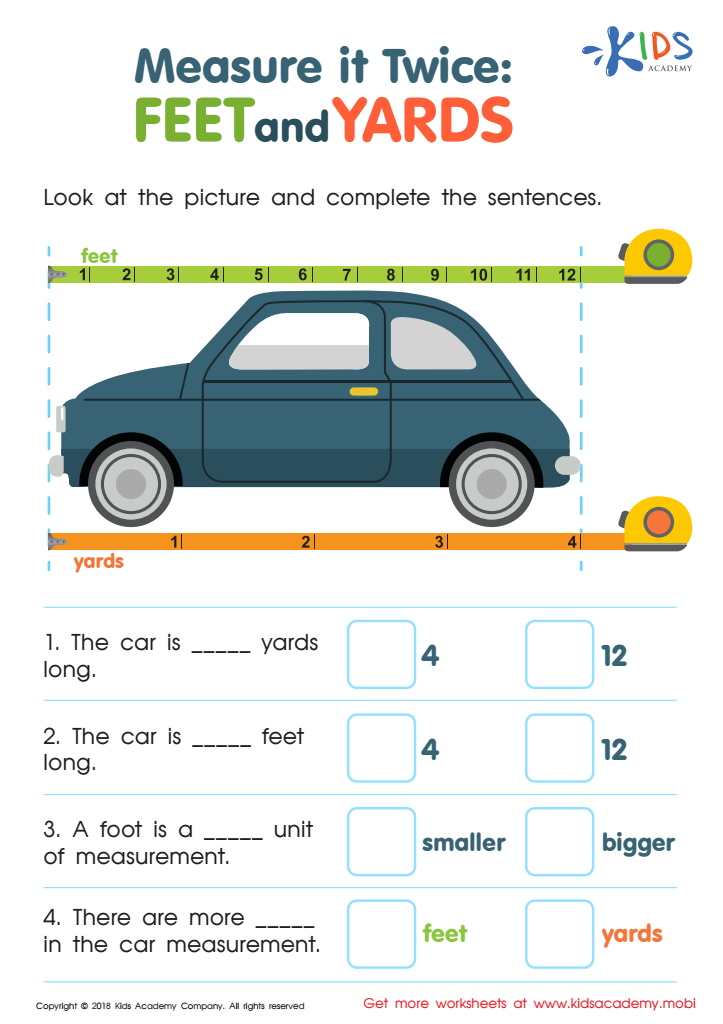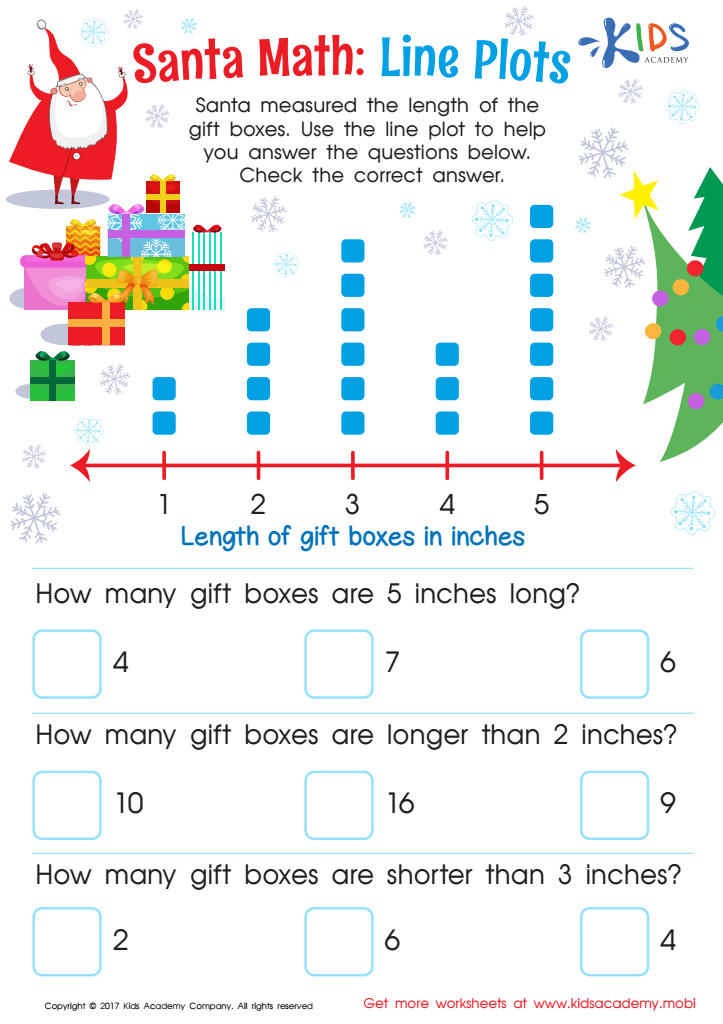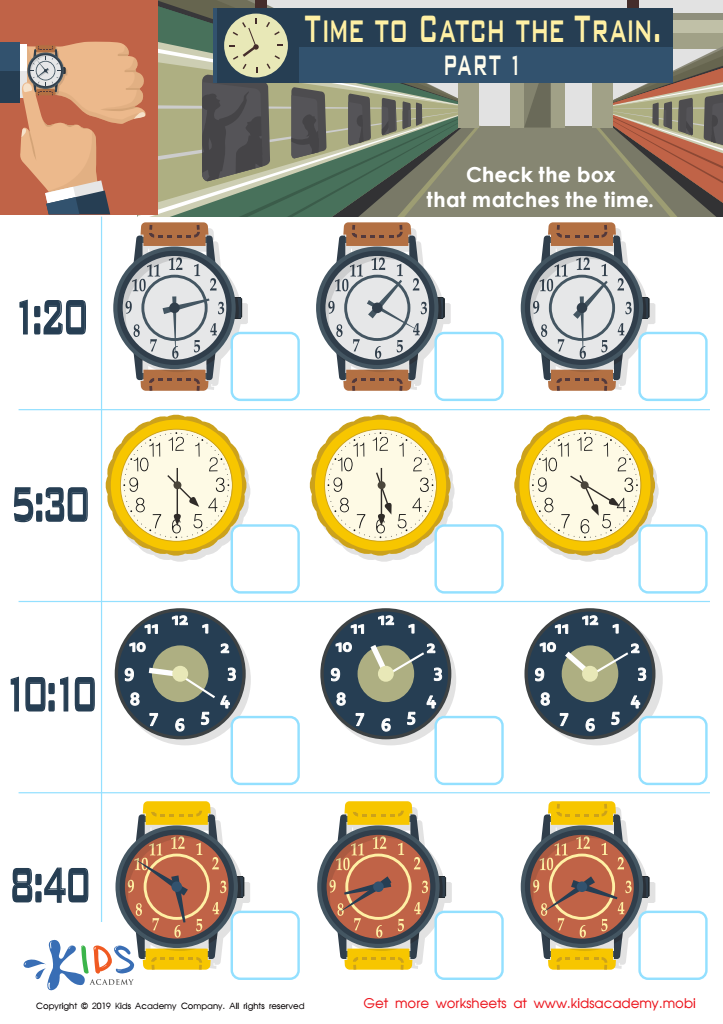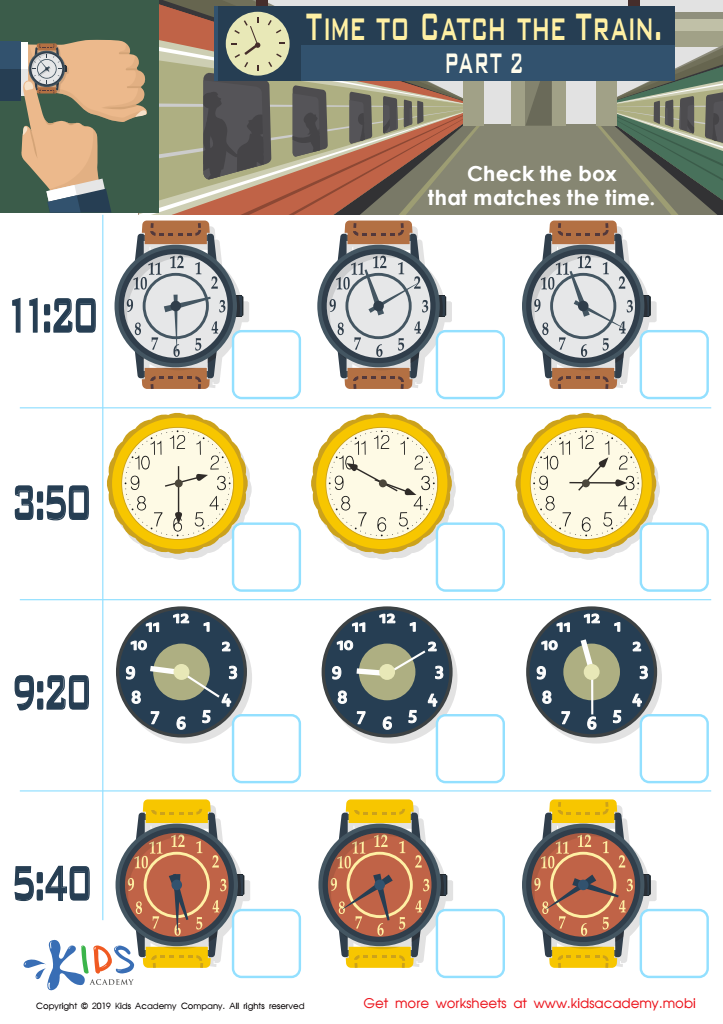Problem-Solving Skills Normal Measurement Worksheets for Ages 4-7
4 filtered results
-
From - To
Enhance your child's problem-solving skills with our engaging Normal Measurement Worksheets, designed specifically for ages 4-7. These worksheets provide fun and interactive activities that help young learners understand measurement concepts while developing critical thinking abilities. Through hands-on exercises, children will explore various scenarios related to length, weight, and volume, encouraging them to apply their knowledge practically. Our well-structured worksheets promote independent learning by guiding students to solve problems with step-by-step instructions. Perfect for classroom use or at-home practice, these resources lay a strong foundation for mathematical understanding, setting your child on the path to academic success. Download now for creative learning!


Measure It Twice: Feet and Yards Worksheet


Line Plot Worksheet


Time to Catch the Train Part 1 Worksheet


Time to Catch the Train Part 2 Worksheet
Problem-solving skills are crucial for children aged 4-7 as they lay the foundation for critical thinking and effective decision-making throughout life. At this developmental stage, children encounter various challenges, from simple puzzles to social interactions, enhancing their cognitive abilities. By focusing on normal measurement of these skills, parents and teachers can identify each child’s strengths and areas needing improvement.
Caring about these skills ensures that children develop resilience—learning to approach obstacles creatively rather than feeling defeated. Measuring problem-solving abilities can also help tailor educational approaches to each child’s unique needs, creating a more engaging and supportive learning environment.
Additionally, strong problem-solving skills enhance academic performance across subjects like math, science, and language arts. They empower children to communicate effectively, work collaboratively, and adapt to new situations, all of which are vital in their increasingly complex world.
Finally, fostering these skills nurtures a lifelong love for learning. When children successfully tackle problems, they gain confidence, leading them to embrace future challenges. By emphasizing the importance of problem-solving skills, parents and teachers play a critical role in helping children unlock their potential and become adept, capable individuals.
 Assign to My Students
Assign to My Students
















